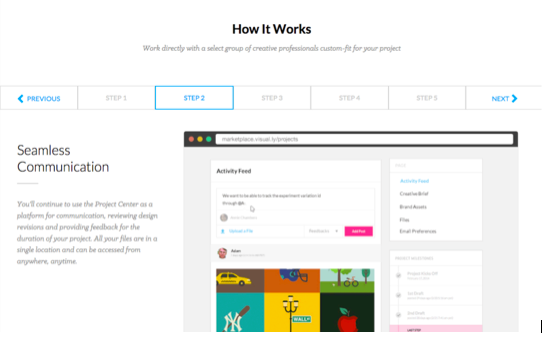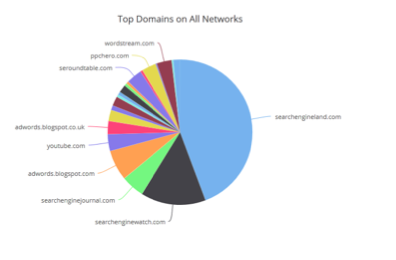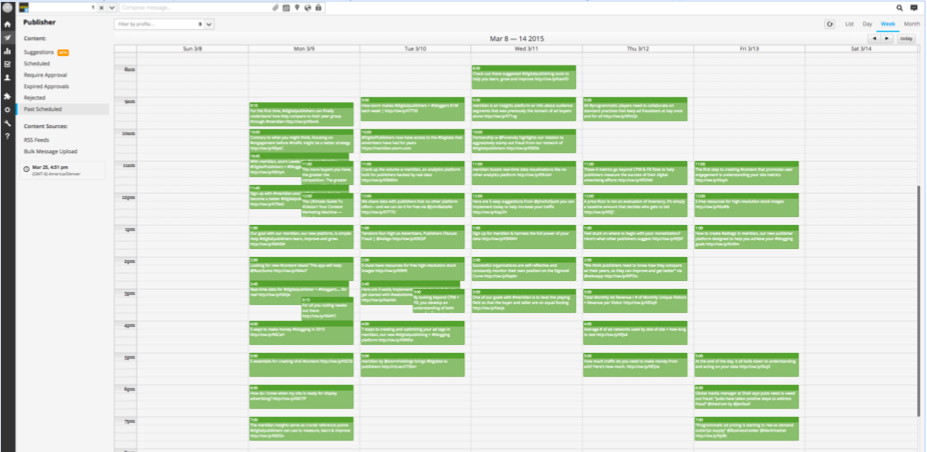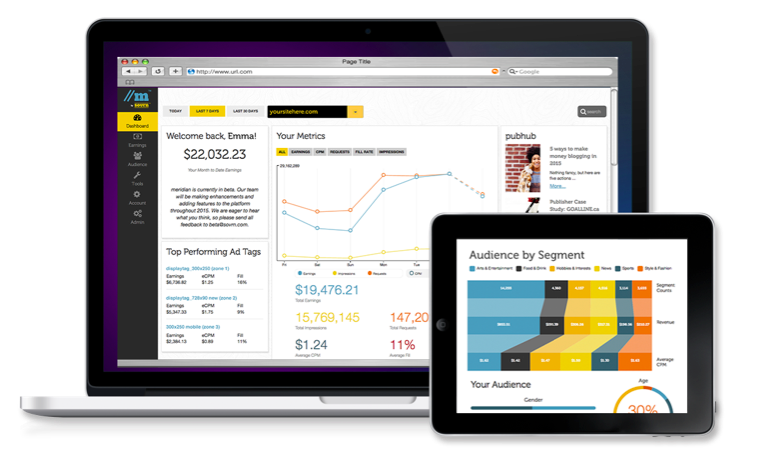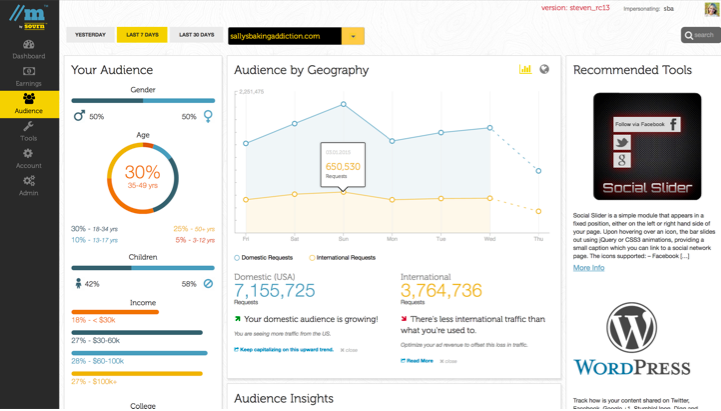Four Blogging Tools to Make your Content Go Further
This is a guest contribution from Chris Crawfurd of sovrn.
You put in countless hours to create the highest quality content possible week after week. Maybe you even spend money on hiring a graphic designer to make your work look even better. But what good is a solid piece of content if it’s not being put in front of the right audience?
These four blogger tools are must-haves for any publisher looking to increase the reach of their online content:
1. Use Visual.ly to increase your content distribution
Visual.ly is the world’s marketplace for visual content. Whether it’s an infographic, video, interactive, or presentation, their streamlined process makes it easy to distribute your content and get it in front of the right audience. Visual.ly is sort-of like a social network for infographic and visualization sharing (talk about niche markets). You can explore, share and, in the near future, even create your own. When you open up the home page, you are greeted by a continuous scrolling of some of the best infographics currently on the website, and signing up takes a minute via the link on the top-right of the page (sign-up is free).
Let’s say we are searching for a particular infographic about, say, Digital Advertising. All you have to do is type Digital Advertising into the search box, hit Enter, and Visual.ly will bring up a list of visualizations tagged with the keyword Digital Advertising. While searching for visualizations, you can organize your results in a number of different ways, for example, by visualizations that are currently trending or by most commented or most viewed visualizations. You can also change the layout of your search results – the most useful view shows a description of the graphic so you can find exactly what you are looking for.
Next Steps:
- Register for a free account onVisual.ly
- Upload your content
- Enjoy the sudden flux of digital eyeballs and link love
2. Use BuzzSumo to gain insights into what your competition is blogging about
BuzzSumo provides insights into the most popular online content and the influencers behind it. The next time you’re brainstorming blog topics for your upcoming content cycle, try researching the topic you’re interested in via the BuzzSumo platform to see what other bloggers and content influencers have to say about it. It might help steer you in the right direction.
Here’s a breakdown of what BuzzSumo actually does:
- Allows you to search for content that has been widely shared within social media sites
- Gather metrics around content and segment it by content format
- Quickly find guest posts, contests, videos, interviews and infographics
- Find out who the influential content curators/aggregators are within any niche
- Gather statistics on industry influencers and their associated websites
- Export all of the intelligence into Excel spreadsheets
The real meat of BuzzSumo is in its “Pro” version. Through BuzzSumo Pro you can access its Content Analysis Reports. Think of these as regular BuzzSumo reports on steroids.
For data nerds (and I know there’s a few of you out there), this level of reporting will keep you up at night.
From this dashboard, you can see just about everything there is to know about a specific topic. In this example, “AdWords” is the content area of interest. In addition to tons of other cool graphs, you can also see, at a glance, which domains are just killing it in your industry.
3. Use Hootsuite to manage and distribute your social media
Manage social networks, schedule messages, engage your audiences, and measure ROI right from the Hootsuite dashboard. Hootsuite is a third-party tool or application that is designed to collate all of your social media account streams into one handy dashboard. You can write, send, schedule and track posts from its simple interface across multiple networks and multiple accounts. It is therefore a good option for those people or businesses that have either multiple accounts on one social media network or accounts across multiple networks – for example Facebook, Twitter, LinkedIn and Instagram.
Hootsuite is web-based and does not require any software download. You can also add team members (and implement work-flow) as well as monitor analytics and performance.
The primary use of Hootsuite is a social media dashboard (or social media management system) that provides a view of all your social media activity across all your accounts and allows you to post to all of them from one place. It gives you access to up to five of your top social media streams for free – including Facebook, Twitter, MySpace, WordPress, Mixi, Instagram, Google+ among others, which can be much easier than trying to manage all of these accounts directly from a browser. Not only can you track your posts, but you can also reply directly within Hootsuite as well as post updates on every network from the one place.
What do you get with Hootsuite?
- Manage multiple Twitter, Facebook (profiles, events, groups and pages), LinkedIn (Profiles, Pages and Groups), WordPress, Google+, Foursquare, MySpace (does this even still exist?), Vimeo, Instagram, ping.fm and more accounts from one place
- Schedule your social media updates
- Collaborate as a team – including ability to assign replies, mark as done, track messages etc.
- Manage it all through mobile applications
- Customized analytics, included automated scheduled reports (though this can be costly)
- RSS integration
- Customer support
4. Use meridian to harness the value of your data and grow your influence
meridian is a new publisher platform built and designed by sovrn Holdings. meridian acts as a conduit between publishers and advertisers by providing publishers with unique data insights that allow publishers to create better, more targeted and lucrative content. Through meridian, publishers can: manage their ad tags; view unique revenue metrics paired with targeted audience segments; see how their site compares to other sites within their vertical; gain access to an expanding library of publisher tools and third-party integrations.
meridian features detailed, individual advertising performance metrics on a site-by-site, and zone-by-zone basis along with clear trending information. Inside the platform publishers will see detailed audience segmentation detailing the advertiser-driven values and characteristics of readers visiting their sites. In addition to advertising management and optimization, sovrn’s meridian boasts easy to understand reporting and user-friendly data visualization. Publishers see their earnings in real-time. Payments to publishers happen faster than any other system, in virtually every currency, and in every major payment mechanism.
Here are more specifics on what exactly you’ll see in meridian:
- Fresh, user-friendly interface with real-time data visualizations
- Improved ad management tools and performance metrics
- Vertical comparisons for benchmarking performance
- Audience demographics and reader insights
- Integrated content from sovrn’s Publisher Resource Center
- Personalized support from the sovrn Publisher Advocate Team
Pretty cool, right? Here’s what you need to do to gain access to meridian:
- Sign up for a sovrn account on meridian
- Create ad tags, install the audience analytics beacon and search widget
- Sit back and reap the rewards of your hard-earned data.
Well, what did you think? Were these tools helpful? If you have any other tools you’ve found useful in your blogging/content creating endeavors, contact me a ccrawfurd@sovrn.com or leave us a comment below!
Originally at: Blog Tips at ProBlogger
Four Blogging Tools to Make your Content Go Further
SOURCE: @ProBlogger – Read entire story here.
